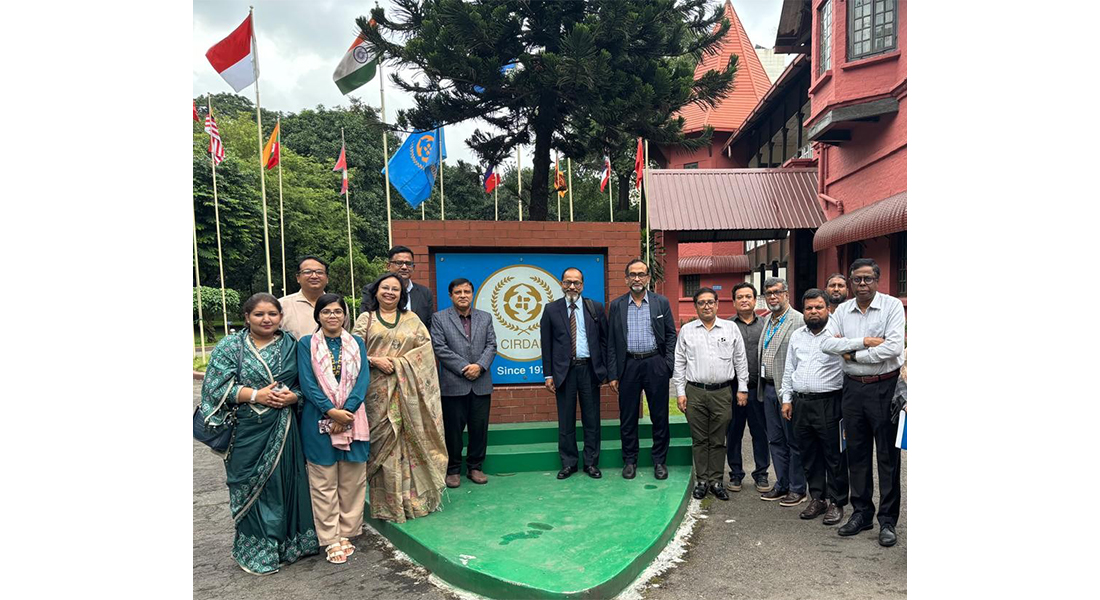
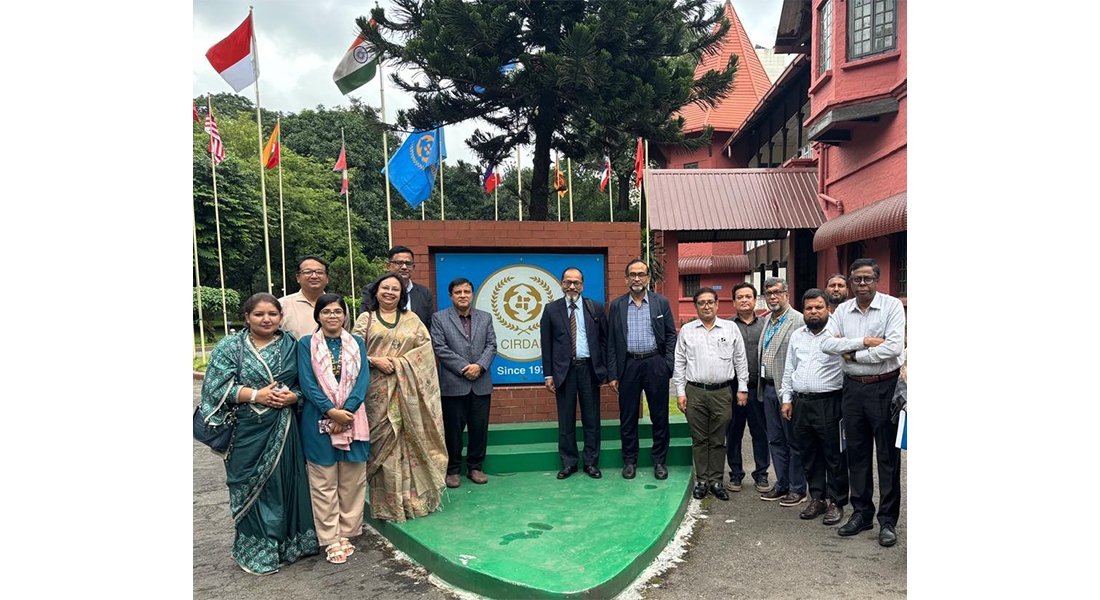

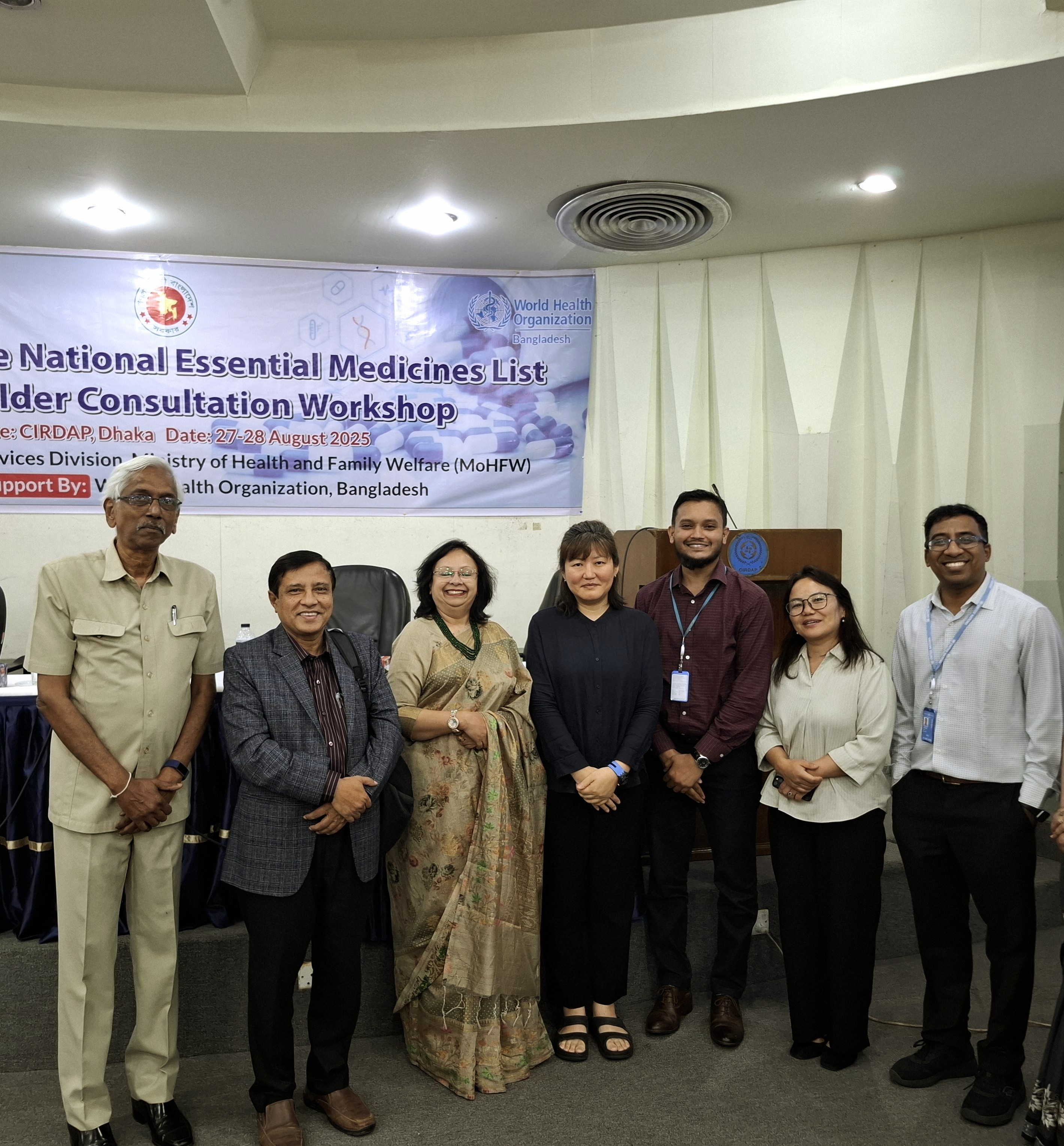
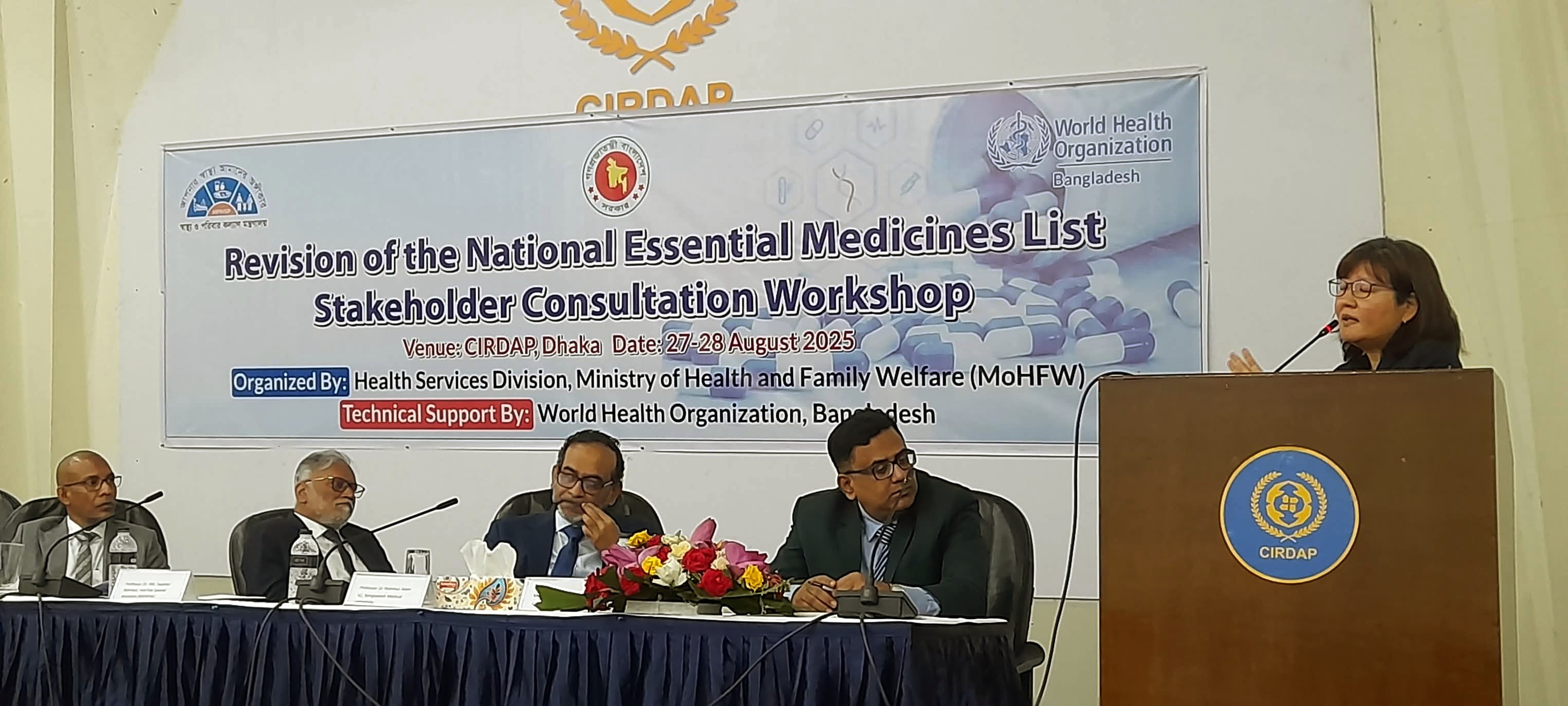
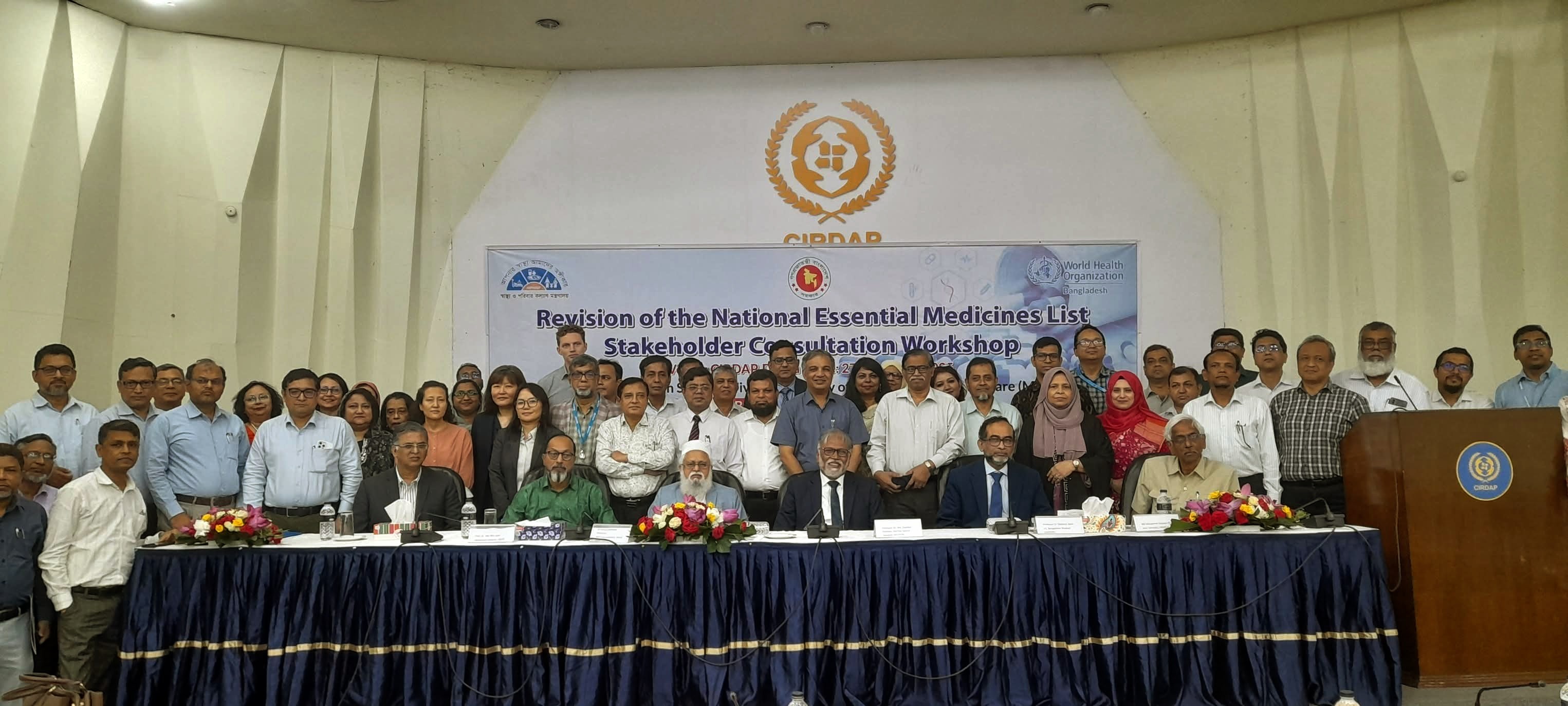
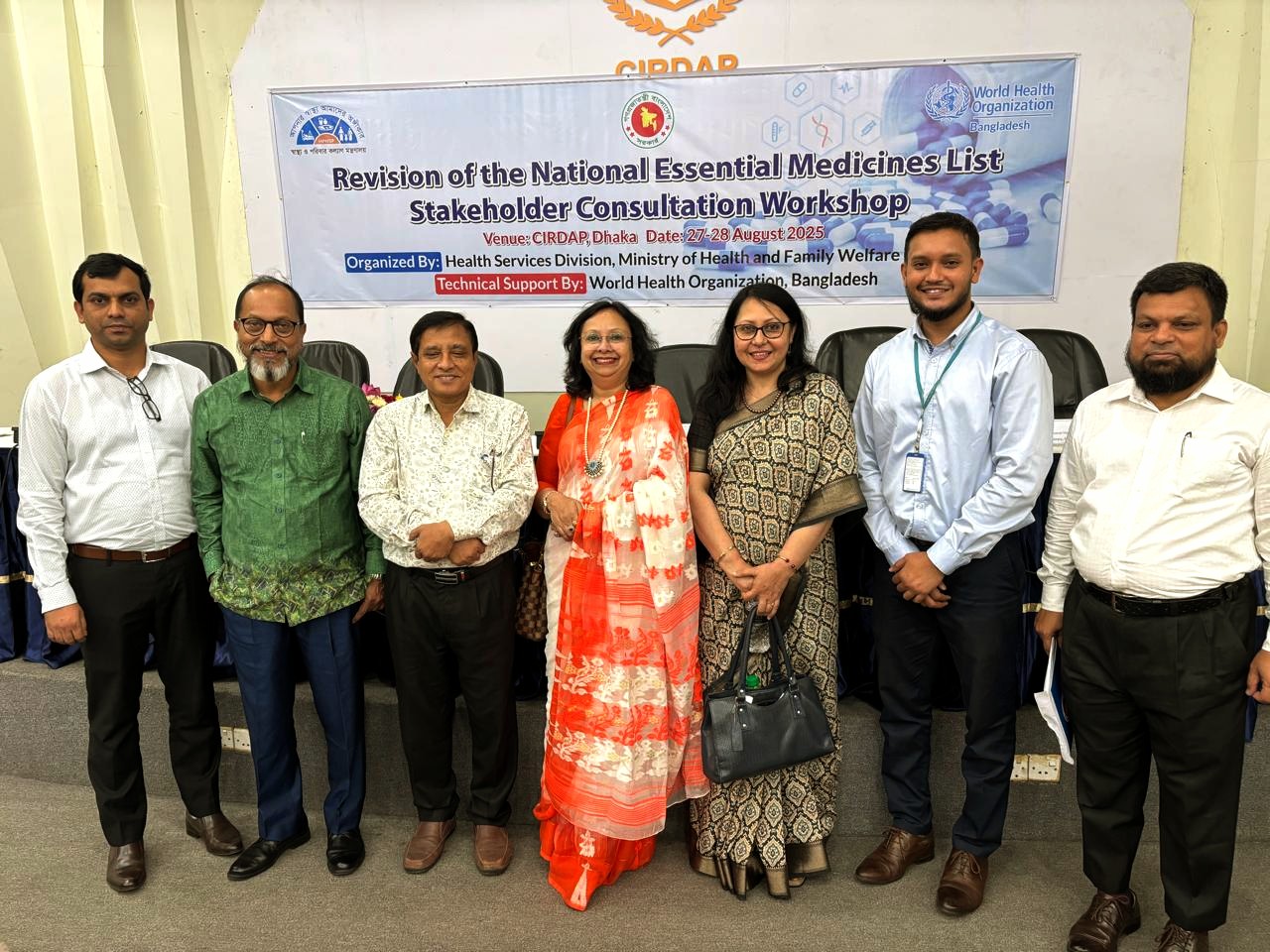
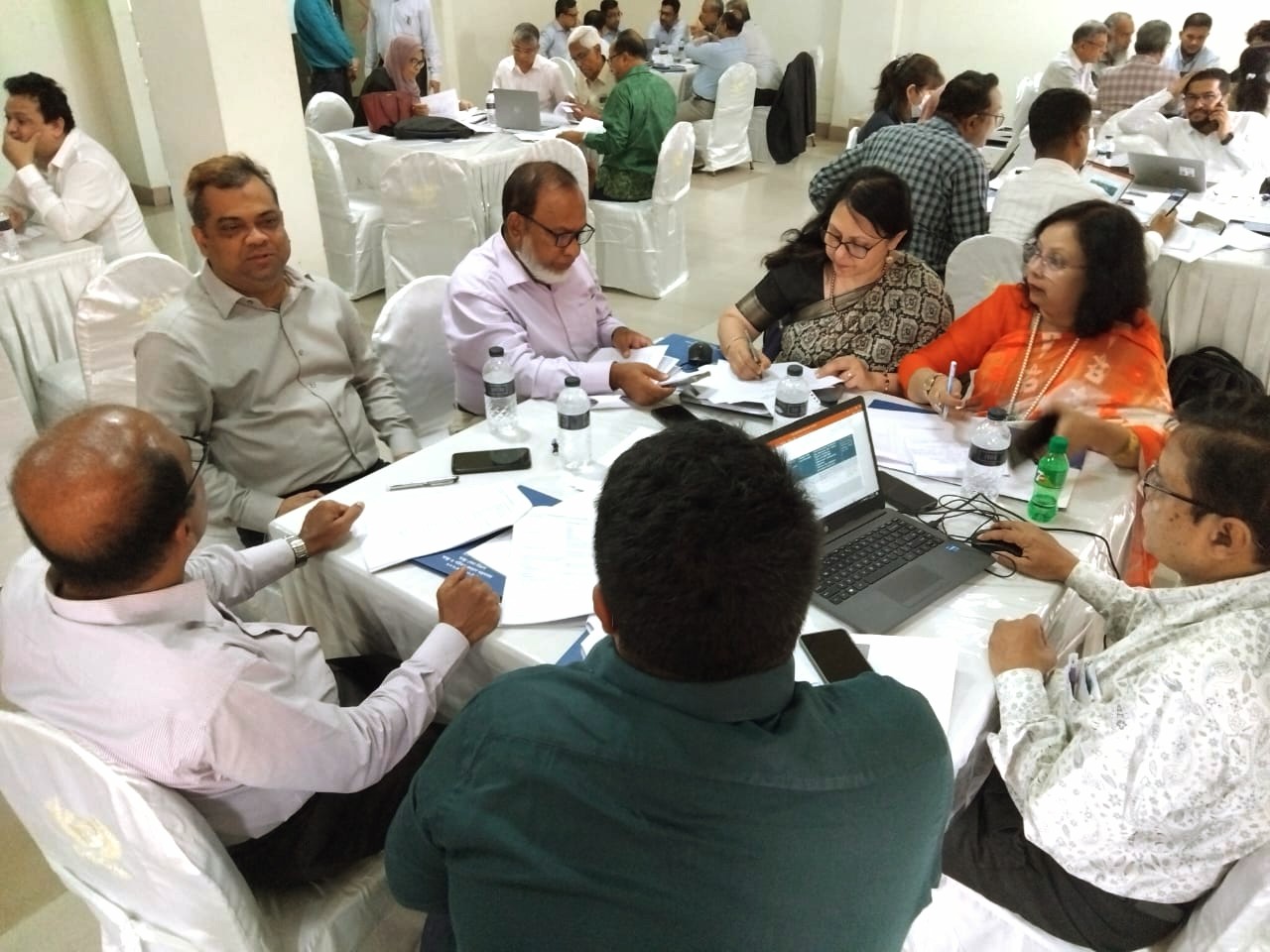
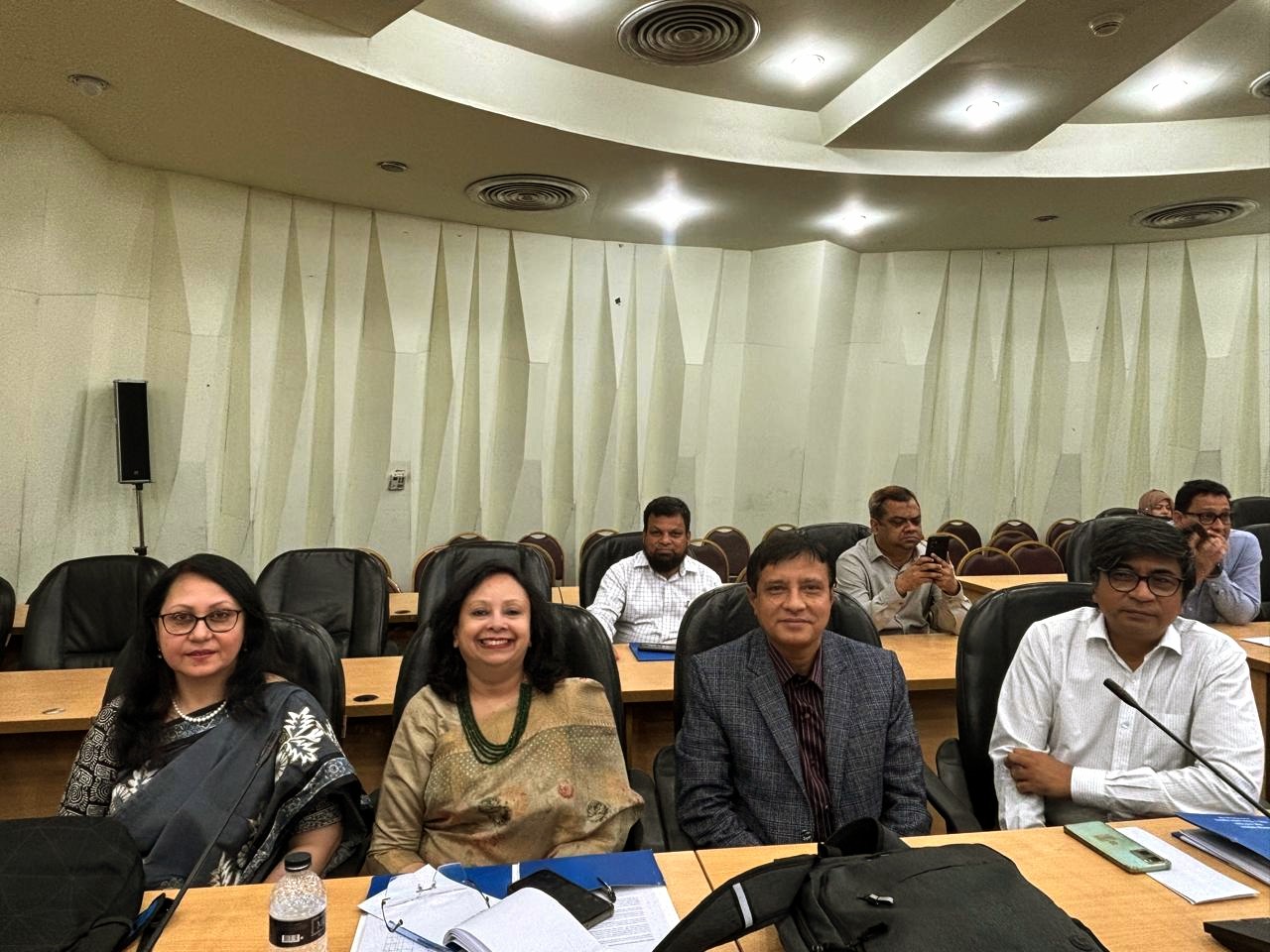
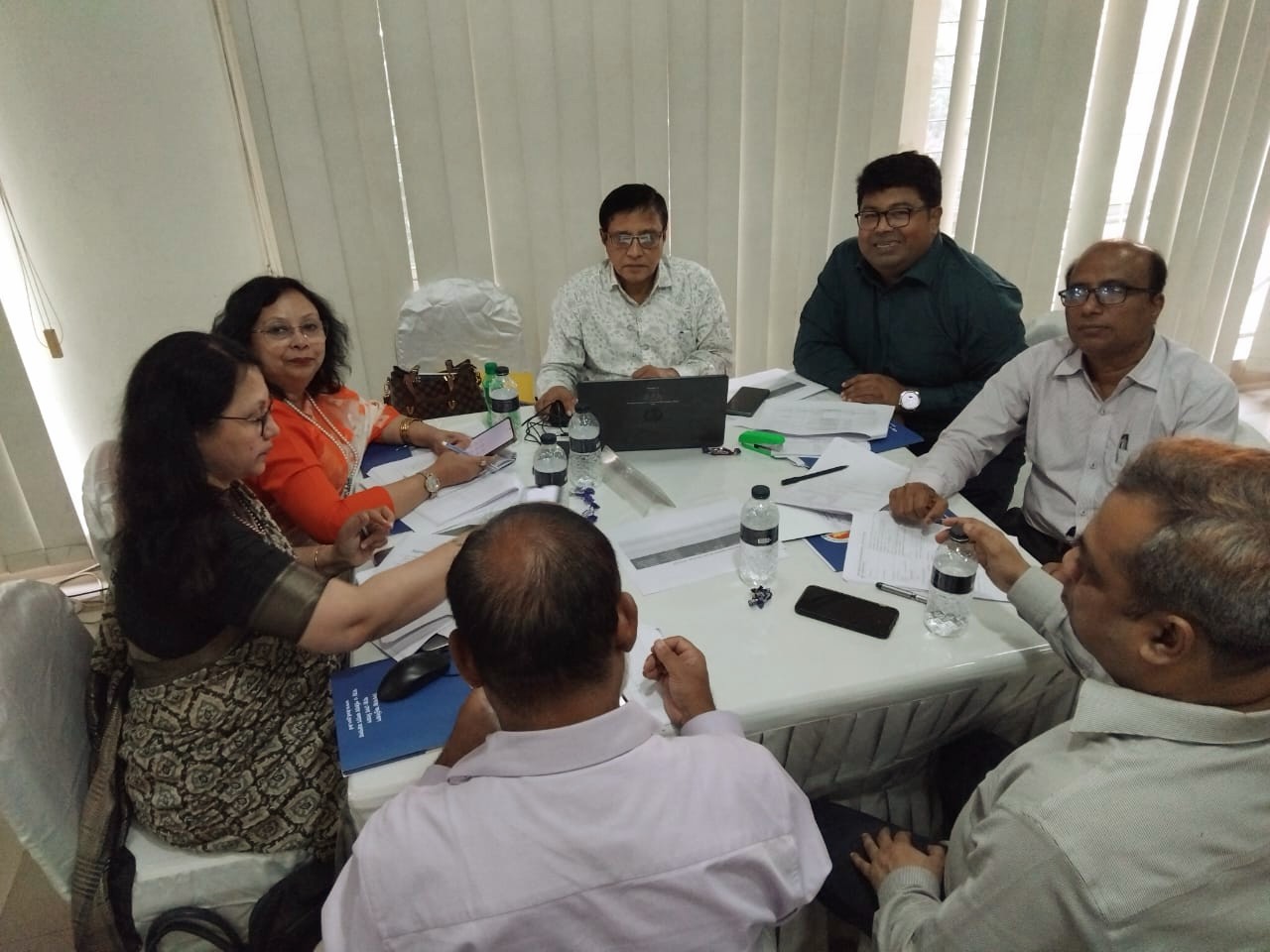
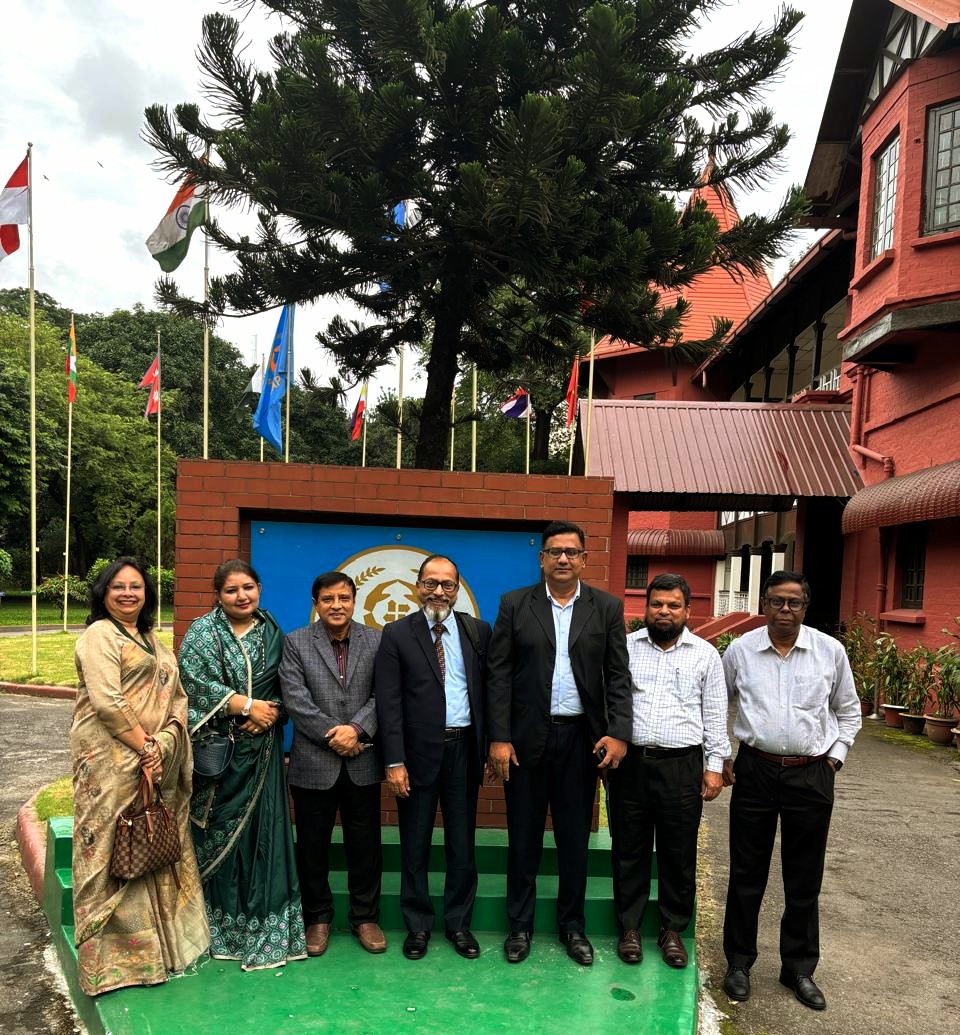
01
Sep
Dr. Farhana Rizwan, attended the “First Stakeholders Consultation Workshop on Updating the National Essential Medicines List (NEML) 2025”
Venue: CIRDAP, Dhaka
Date: 27–28 August 2025
Organized by: Health Services Division, Ministry of Health and Family Welfare (MoHFW)
Technical Support: World Health Organization (WHO), Bangladesh
The First Stakeholders Consultation Workshop on Updating the National Essential Medicines List (NEML) 2025 was held at CIRDAP, Dhaka, on 27–28 August 2025. The event marked the first revision of the NEML in nine years and stands as a historic milestone in Bangladesh’s progress towards achieving Universal Health Coverage (UHC).
The workshop brought together nearly 100 participants, including clinicians, public health experts, medicine specialists, academics, and policymakers. The discussions were facilitated with technical support from the World Health Organization (WHO), Bangladesh, and focused on preparing a draft list of essential medicines. Key guiding principles included disease burden, clinical efficacy, patient safety, and cost-effectiveness. In his address, the Hon’ble Special Assistant to the Ministry of Health and Family Welfare, Prof. Sayedur Rahman, stated: “The Government is committed to making all essential medicines available and affordable for the people, with sustainability and future growth in mind.”
The WHO Representative to Bangladesh, Dr. Ahmed Jamsheed Mohamed, acknowledged the leadership of MoHFW and emphasized: “The Essential Medicines List is more than just a compilation of medicines; it is a national policy tool to serve as a catalyst for tangible health gains, stronger primary healthcare, and meaningful progress towards UHC. WHO stands ready to provide technical guidance throughout the process”.
Dr. Farhana Rizwan, Associate Professor, Department of Pharmacy, East West University (EWU), participated in the workshop as one of the academic stakeholders. Her involvement reflected EWU’s continued commitment to contributing to national health policy discussions and evidence-based strategies for ensuring equitable access to medicines.
This significant consultation marked the first revision of the NEML in nine years, where healthcare professionals, academics, and policymakers collaboratively worked to prepare a draft list of essential medicines. The process emphasized disease burden, clinical efficacy, safety, and cost-effectiveness as guiding principles for medicine selection. The revised NEML is expected to play a pivotal role in improving equitable access to essential medicines and will significantly strengthen Bangladesh’s pathway towards universal health coverage.